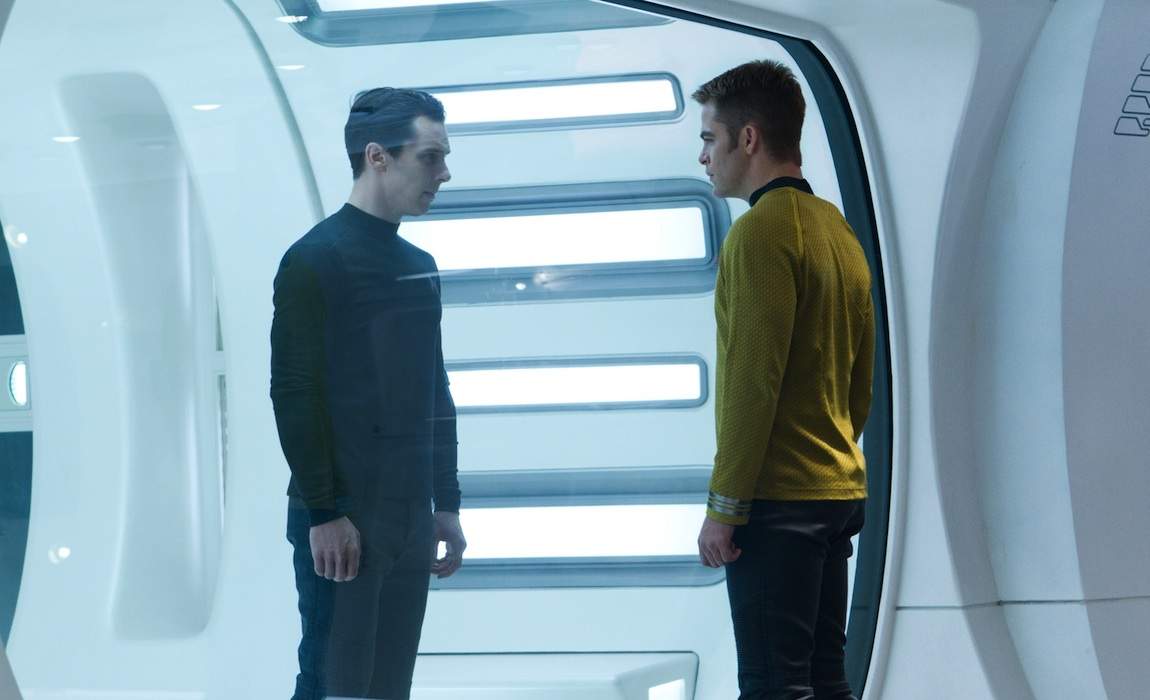Star Trek Into Darkness
Massive in scale yet also capable of intimacy, JJ Abrams' latest movie is yet another blockbuster hit.
Overview
It may be a summer blockbuster but the weighty themes come thick and fast in JJ Abrams' second Star Trek film Into Darkness. Just minutes into the opening scene, almost before we've even seen our first lens flare, Spock (Zachary Quinto) reminds the crew of the Enterprise with Leninesque fidelity that "the interests of the many outweigh the interests of the few". Soon after, we're asked to consider the true meaning of friendship, to weigh the expediency of vengeance against the necessity of justice and even to opine on the militarisation of a traditionally scientific vessel. In short: it's a terrifically fun film that aspires (and mostly achieves) to be something much more.
In many ways, Spock's eloquent reminder is just as relevant to the big studios, compelling them as it were to balance the expectations of dedicated fans with the need to make the movie widely marketable. That's why Abrams is such an excellent choice of director, not only for these Star Trek films but now also the Star Wars ones, since both possess loyal and passionately defensive fans who consistently reject change as often as they reject each other.
Arguably the greatest accomplishment of his first Star Trek film in 2009 was that it satisfied the Trekkies whilst opening up the franchise to an entirely new audience. Now again, in Into Darkness, Abrams carefully traverses that balance between old and new, as well as between the pop and the pensive. For every furrowed brow or teary eye moment come multiple laughs, usually courtesy of Quinto's logic-driven Spock or Simon Pegg's Scottish-driven Scotty. And as for the action, it's predictably topnotch, both in its intergalactic sequences and small-scale, hand-to-hand pieces.
The Star Trek universe has always been defined by the relationship of its two leads Kirk (Chris Pine) and Spock however, it's also true that heroes are defined by their villains, and thankfully in Into Darkness they have a fantastic one in the shape of Benedict Cumberbatch. With that now famous Alan Rickman-like baritone growl, he throws himself into the character of John Harrison, a British spy turned rogue terrorist whose devastating attack on London sees Kirk pursue him to the far reaches of the galaxy in order to bring him to justice one way or another (given those orders come from Robocop's Peter Weller as Starfleet's admiral, it was a small shame he didn't actually say "Harrison, dead or alive, you're coming with me").
Into Darkness also sees all the familiar characters return (Bones, Chekov, Uhura and Sulu) along with the introduction of a sadly underused Alice Eve; however, it's Cumberbatch who really drives it forward. Even the Kirk/Spock dynamic takes a back seat (subject to one or two key moments), and if anything, it's that shift away from what made the first Star Trek film soar that's probably Into Darkness's only significant failing.
Overall, this is a wonderful movie, large in scale but also capable of delivering impressively intimate moments throughout.





